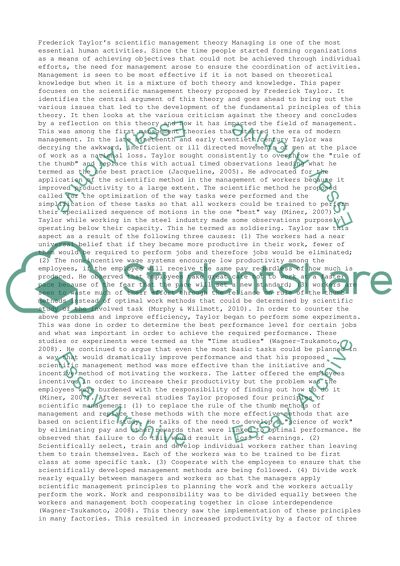Management Theory of F.Taylor Essay Example | Topics and Well Written Essays - 750 words. Retrieved from https://studentshare.org/business/1439069-management-theory
Management Theory of F.Taylor Essay Example | Topics and Well Written Essays - 750 Words. https://studentshare.org/business/1439069-management-theory.


